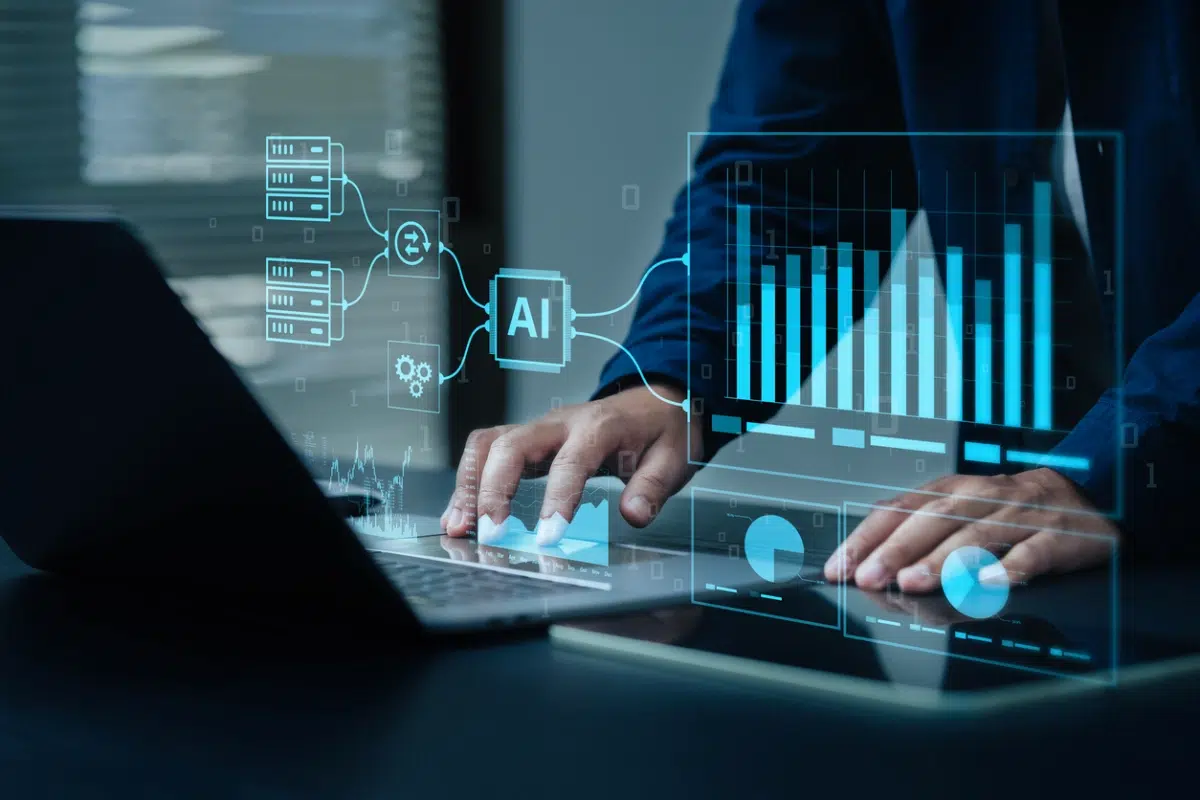Nearly 85% of large employers have begun implementing Artificial Intelligence (AI) systems into their workplaces. For businesses, AI has the power to increase efficiency, productivity, customer service, quality control, and employee safety, and to decrease the costs of human labor. Alongside tremendous opportunities for progress presented by AI, the new technology also presents significant pitfalls if implemented incorrectly.
One of the biggest concerns that AI poses is the idea that it could undermine workers’ rights by embedding bias and discrimination into decision-making processes. Since AI operates on data that humans have chosen to input, and without any necessary oversight, AI may replicate biased and unlawfully discriminatory patterns in its output.
Discrimination in AI-Based Hiring and Assessment
AI is frequently used to create job listings, connect applicants to job listings, identify potential candidates to recruit, review job applications and select applicants for hire, and conduct initial interviews. Ideally, AI would eliminate any human bias in the hiring process and select candidates based on quantifiable merit. Ironically, in reality, AI may not actually eliminate human bias but instead propagate bias.
In order for AI to act as a hiring tool, humans must feed AI data regarding successful candidates and employees. The dangers lie in the possibility that the data can contain bias or give an incomplete or skewed picture of what a hirable candidate or strong employee may look like. The AI will, in that case, continue to replicate the biased or incomplete patterns within its output, discriminatorily favoring certain candidates over others. Ultimately, AI is only as good as the data it relies on. If the data is bad, AI could undermine workers’ rights by embedding bias and discrimination into decision-making processes, while removing transparency and human oversight from the same decisions.
AI-Based Discrimination Lawsuits
In 2023, the Equal Employment Opportunity Commission (EEOC) settled its first lawsuit regarding AI-based employment discrimination. The class action lawsuit accused a tutoring company, iTutorGroup, of age discrimination in violation of federal law. Allegedly, iTutorGroup used an AI program to screen candidates and had been programmed to automatically reject all male applicants over the age of 60 and all female applicants over the age of 55. Settlement terms for iTutorGroup included paying any affected job applicants and reconfiguring their AI and hiring processes.
In an ongoing class action case (Mobley v. Workday) filed in the Northern District of California, after being rejected from over 100 jobs, Plaintiff Morley alleges that Workday uses AI-powered applicant screening tools to discriminate based on race, age, and disability. While that case is currently ongoing, the court has recently confirmed that the case can move forward as a class action. Regardless of the outcome, it will no doubt have an impact on companies that use AI programs like Workday to select candidates.
Intentional Application of AI at Work
AI can be a powerful tool when applied thoughtfully. To use AI in hiring and assessment while avoiding the pitfalls presented by AI, employers must be intentional when they use the technology. Employers should fully understand how the AI functions and train all employees on how to use the AI and how to avoid bias. Employers should never enter protected characteristics as selection criteria, and should review the AI output for any disproportional results. Applicants and employees should be made aware of AI’s role, whenever and however it is applied. Finally, human employees should be involved in tandem with AI in all aspects of company decision-making.
Reach Out to an Attorney
Since AI is a novel tool, employers and employees inevitably have a lot to learn about AI. If you feel that your rights are being violated at work due to biased AI programs, reach out to an employment attorney for assistance. Navruz Avloni is a California employment attorney dedicated to standing up for workers. Contact the team at Avloni Law to learn more about your rights, discuss your potential claims, and obtain legal advice. Call the Avloni Law firm today for a consultation if you have questions.

